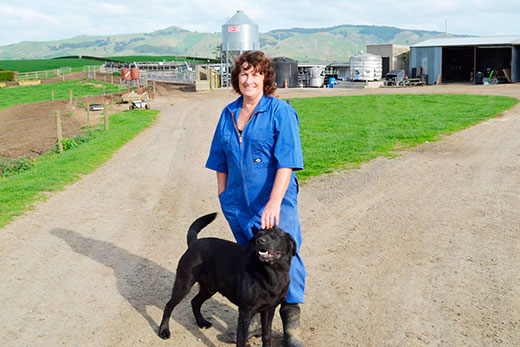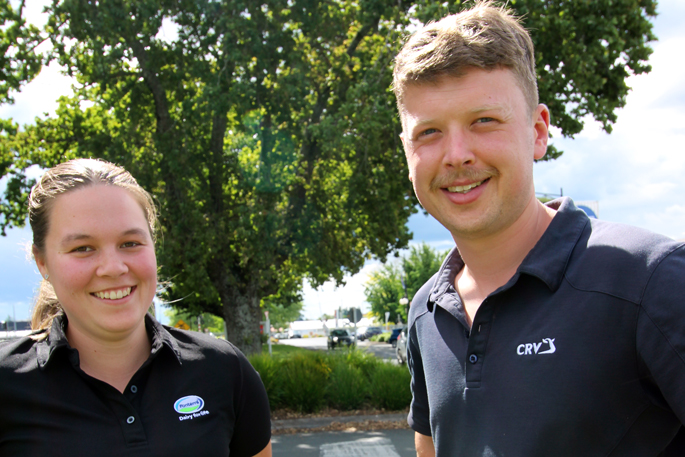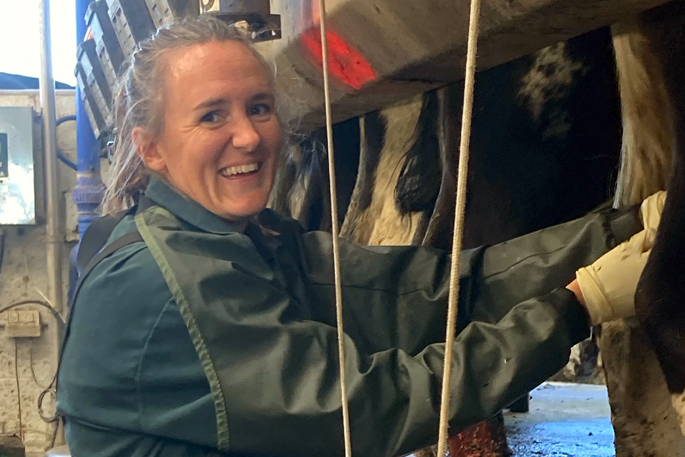It’s hard not to feel the pressure to look after the land when you live in such a beautiful valley as Judy Begovich does.
She’s been farming land at Kiwitahi with her husband, Mark, since 2001. “Agrecovery really helps us watch our footprint and be a good steward of the land,” says Judy.
“I started using Agrecovery because we were already recycling at home and we wanted to do more on the farm.”
And with finances tight in the dairy industry at the moment, the Agrecovery drum programme provides free on-farm pick up for participating brand owners, so as Judy says: ‘Why wouldn’t you use it?’
“The booking system on the website was so easy to use. I’m not very good with computers, so if I can use it anybody can!”
Judy also takes her smaller containers to her local Agrecovery collection site.
“I expect the next generation will do a lot better than past generations, because this is such an easy system. Back in the day, everything used to get burned and buried.
“Now you only have to make a booking and you’re making a difference,” says Judy.
“It’s just really easy.”
Judy is among farmers, contractors and growers throughout New Zealand who between them have recycled 1.4 million kilograms of container plastic.
“We’re now in our 10th year of operations and the numbers prove that farmers will make good environmental choices if they have accessible options for their farm waste,” says Agrecovery Foundation chair Adrienne Wilcock, who is a dairy farmer herself. “Together with contractors, growers and other users of agrichemicals, farmers have recycled 1.4 million kilograms of plastic containers and safely disposed of 100,000kg of unwanted chemicals. “In the past these options simply weren’t available but Agrecovery proves that if it’s there, they will use it.”
Agrecovery provides recycling and recovery for chemicals and their packaging, through a combination of on-property collections, recycling events and a network of permanent collection sites throughout the country.
“We started the programme with 18 brands that recognised their responsibility to provide a long-term solution for their products’ packaging when the farmer or contractor had finished with it. “Not only has that number grown to 65 brands, but we’ve also added large drum recovery and chemical collection,” says Adrienne. These manufacturers and distributors are setting a great example for all New Zealand businesses, not just in the rural sector, by providing a stewardship solution for their customers who have products and packaging to dispose of.
According to Adrienne, a 20 litre container buried on-farm will take more than 400 years to break down, while burning it releases harmful dioxins and furans into the air and soil. The alternative, recycling it, saves energy equivalent to two litres of petrol per 20 litre container. “It’s a bit of no-brainer – as some of our recyclers like to say.” And what was acceptable practice in the past will not be acceptable in the future, says Adrienne.
“We have to find ethical ways of dealing with farm waste, which line up with the demands of our export markets and with farmers’ desire to be good stewards of their land. “Burning and burying containers when there’s free recycling available just doesn’t stack up.”
|
||||||||||||||||||





0 Comments
Leave a Comment